By Allison Kozicharow; Edited by Elizabeth Fine
July Outcomes
WiRED initiated a new reporting system for our CHWs last March. The new outcomes procedure will record data on CHW home visits, referrals and follow-up and help us understand the direct interventions and level of care CHWs provide. The following include sample outcomes for July, noted by the CHW team.
HIV/AIDS
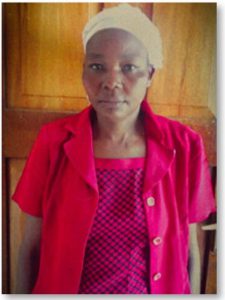 As I was going round in the community educating the community members about health issues, I came across a man who has been sick for more than two years but had not yet gone for HIV testing and counseling. When I talked with him about HIV testing and counselling, he agreed to visit the health center and was tested. He shared the results with me that he tested positive for HIV, and now he’s on the drugs and doing well. He has gone back to work and thus thanks the WiRED organization for bringing health education to the community to help the community members.
As I was going round in the community educating the community members about health issues, I came across a man who has been sick for more than two years but had not yet gone for HIV testing and counseling. When I talked with him about HIV testing and counselling, he agreed to visit the health center and was tested. He shared the results with me that he tested positive for HIV, and now he’s on the drugs and doing well. He has gone back to work and thus thanks the WiRED organization for bringing health education to the community to help the community members.
—CHW Milka Aoko Nyadiang’a
 As a CHW, I have talked to over 500 people concerning HIV/AIDS. Out of 500 I have managed to talk to 50 of them for HIV/AIDS testing and counseling. Three clients who agreed to be tested turned out to be HIV positive. They received care and treatment and were discharged. They are now active and back to their normal operation as they continue with their drugs and other psychosocial support in their various groups.
As a CHW, I have talked to over 500 people concerning HIV/AIDS. Out of 500 I have managed to talk to 50 of them for HIV/AIDS testing and counseling. Three clients who agreed to be tested turned out to be HIV positive. They received care and treatment and were discharged. They are now active and back to their normal operation as they continue with their drugs and other psychosocial support in their various groups.
—CHW Vincent Omondi
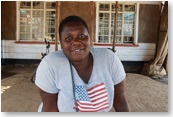 As WIRED CHWs we need to start tightening our belts on HIV/AIDS awareness education in the community because of the new drug that is yet to be launched, an HIV preventive drug that lasts up to six months per dose. I met this group of men who said that it was the fear of getting infected with HIV/AIDS that used to keep them in check since they were afraid of taking medicine, but when the new drug is available the fear will leave and they will engage recklessly in unprotected sex without any fear. We discussed more about sexually transmitted diseases and the many advantages of not doing that and finally some agreed, but not all. I hope when I keep sharing this information with them, they will agree with me.
As WIRED CHWs we need to start tightening our belts on HIV/AIDS awareness education in the community because of the new drug that is yet to be launched, an HIV preventive drug that lasts up to six months per dose. I met this group of men who said that it was the fear of getting infected with HIV/AIDS that used to keep them in check since they were afraid of taking medicine, but when the new drug is available the fear will leave and they will engage recklessly in unprotected sex without any fear. We discussed more about sexually transmitted diseases and the many advantages of not doing that and finally some agreed, but not all. I hope when I keep sharing this information with them, they will agree with me.
—CHW Bunnyce Atieno
Malaria
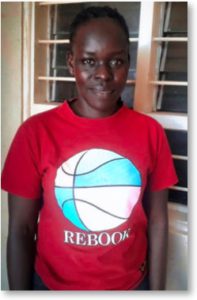 As I was performing health education in different villages — Kombedu, Kanyamedha and Bandani — I came across a certain mother who had a very sick child who seemed to be suffering from malaria. After I was done with the health education on malaria, I called the mother aside and talked to her. She told me that the child has been having symptoms such as fever, vomiting and joint pain. I educated the mother on the mode of malaria transmission, signs and symptoms and preventive measures. Then I referred the mother to the nearest health facility for further diagnosis. Two days later I followed up with the mother and found out that the child was suffering from malaria. The child had been treated and given medication, and now the baby is doing well. Also during this month, I educated more people about malaria and I referred 20 people with malaria symptoms to the service provider and five people were diagnosed with malaria and were treated.
As I was performing health education in different villages — Kombedu, Kanyamedha and Bandani — I came across a certain mother who had a very sick child who seemed to be suffering from malaria. After I was done with the health education on malaria, I called the mother aside and talked to her. She told me that the child has been having symptoms such as fever, vomiting and joint pain. I educated the mother on the mode of malaria transmission, signs and symptoms and preventive measures. Then I referred the mother to the nearest health facility for further diagnosis. Two days later I followed up with the mother and found out that the child was suffering from malaria. The child had been treated and given medication, and now the baby is doing well. Also during this month, I educated more people about malaria and I referred 20 people with malaria symptoms to the service provider and five people were diagnosed with malaria and were treated.
—CHW Millicent Randiki
Cholera
 Cholera has been a great challenge in our sub-location called Kogony. Most people used to be infected with cholera in the past years due to poor hygiene. This includes lack of latrines, poor hygiene, practices such as not washing hands at critical times and poor waste disposal. When the community outlawed open defecation, the cholera cases went down, and the few cases are being referred to the health facility for more diagnosis and proper treatment. The good hygiene practices also include proper water treatment, washing hands with running water and soap, using latrines, proper waste management/disposal and good personal and environmental hygiene practices.
Cholera has been a great challenge in our sub-location called Kogony. Most people used to be infected with cholera in the past years due to poor hygiene. This includes lack of latrines, poor hygiene, practices such as not washing hands at critical times and poor waste disposal. When the community outlawed open defecation, the cholera cases went down, and the few cases are being referred to the health facility for more diagnosis and proper treatment. The good hygiene practices also include proper water treatment, washing hands with running water and soap, using latrines, proper waste management/disposal and good personal and environmental hygiene practices.
—CHW Milka Aoko Nyadiang’a
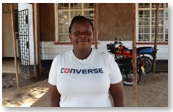 During this month of July, I came across a certain family that were ill but didn’t know why. They were experiencing diarrhea after taking in the food they normally ate. After few discussions, I suspected that they might be suffering from food poisoning or cholera, so I referred them to Migosi sub-county hospital, which is near them, because they said that they had not visited any hospital and only take drugs from over the counter. After a few days, I visited the family and found them healthy. They had been treated and taught about water treatment, hygiene and nutrition because the Migosi area has poor sewerage drainage. The family was happy and thanked WiRED for training CHWs and helping them in the community. Also, this month I referred eight family members suffering from cholera/diarrhea to the hospital. After being referred, they were educated on water treatment and hygiene.
During this month of July, I came across a certain family that were ill but didn’t know why. They were experiencing diarrhea after taking in the food they normally ate. After few discussions, I suspected that they might be suffering from food poisoning or cholera, so I referred them to Migosi sub-county hospital, which is near them, because they said that they had not visited any hospital and only take drugs from over the counter. After a few days, I visited the family and found them healthy. They had been treated and taught about water treatment, hygiene and nutrition because the Migosi area has poor sewerage drainage. The family was happy and thanked WiRED for training CHWs and helping them in the community. Also, this month I referred eight family members suffering from cholera/diarrhea to the hospital. After being referred, they were educated on water treatment and hygiene.
—CHW Lency Mmbone
Other Health Concerns
Blood Pressure (Hypertension)
 I was teaching a group of community members about hypertension. We were discussing the causes of high and low blood pressure. There was a woman from the crowd who realized that she had the signs I was talking about. After my session with them I talked to the woman one-on-one and discussed how she felt. At the end of the session, we decided to go to the hospital where I referred her to the Obunga dispensary. Her blood pressure was taken and the doctors confirmed to her that it was very high. She received a counselling session where she was taught about how to manage her pressure and also given some medicines that would also help her manage the pressure. Up to now she takes the medicines very well.
I was teaching a group of community members about hypertension. We were discussing the causes of high and low blood pressure. There was a woman from the crowd who realized that she had the signs I was talking about. After my session with them I talked to the woman one-on-one and discussed how she felt. At the end of the session, we decided to go to the hospital where I referred her to the Obunga dispensary. Her blood pressure was taken and the doctors confirmed to her that it was very high. She received a counselling session where she was taught about how to manage her pressure and also given some medicines that would also help her manage the pressure. Up to now she takes the medicines very well.
—CHW Pauline Omuga
Hernia

Recently there have been cases of children under age five being born with hernias. The hernias grow rapidly, and thus the parents were worried and seeking solutions. A mother who is a neighbor came to me stating that anytime her child consumes a drink or food the child vomits. I referred her to the Jaramogi Oginga Odinga Teaching and Referral Hospital to seek help from pediatric surgeons. The doctors confirmed it to be hernia and performed a minor surgery. Now the child is doing well. Another woman also approached me with the same issue, stating the temperature of her child is always high, and he vomits whenever he consumes anything. I referred her to the hospital and the doctors stated that the hernia was growing, so they performed a minor surgery. The child is still taking medication. I also referred two women with children under age five suffering from hernia to Jaramogi Oginga Odinga Teaching and Referral Hospital. These children also went through a minor surgery and are doing well.
—CHW Tracy Agatha Achieng’
Cervical Cancer
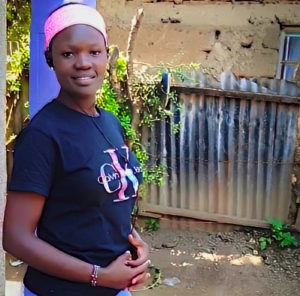 I met a young mother who had some health issues. She said that she had been bleeding heavily during her menstruation, which sometimes comes out with blood clots. It continued until she suspected that she might have cervical cancer. We also discussed that there are some diseases that have the same signs and symptoms. For example, some signs and symptoms are similar to fibroids, which might also be a side effect of a family planning method. I referred her to Migosi health center for cervical cancer screening and she was diagnosed with the disease. She is under treatment and responding positively. Also, during my field work, I came across a patient who was sick and suspected that she might have cervical cancer. I referred her to Migosi health center, and she in turn was diagnosed with the disease. She is under treatment and responding positively, too.
I met a young mother who had some health issues. She said that she had been bleeding heavily during her menstruation, which sometimes comes out with blood clots. It continued until she suspected that she might have cervical cancer. We also discussed that there are some diseases that have the same signs and symptoms. For example, some signs and symptoms are similar to fibroids, which might also be a side effect of a family planning method. I referred her to Migosi health center for cervical cancer screening and she was diagnosed with the disease. She is under treatment and responding positively. Also, during my field work, I came across a patient who was sick and suspected that she might have cervical cancer. I referred her to Migosi health center, and she in turn was diagnosed with the disease. She is under treatment and responding positively, too.
—CHW Liz Adhiambo
Nutrition
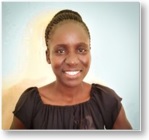 Breastfeeding up to six months is very important for child growth, without giving supplementary food in addition. Many times parents cannot tell what an infant needs and when a child cries, they think he/she is feeling hungry. That’s when they start giving a child milk, yoghurt or porridge. In my findings a large percentage of mothers are not able to breastfeed their babies up to six months exclusively. The reason is that the breast milk is sometimes not enough for the baby. After sharing with mothers on how to do, what to do and the do’s and don’ts during breastfeeding, six mothers were able to breastfeed their babies up to six months exclusively.
Breastfeeding up to six months is very important for child growth, without giving supplementary food in addition. Many times parents cannot tell what an infant needs and when a child cries, they think he/she is feeling hungry. That’s when they start giving a child milk, yoghurt or porridge. In my findings a large percentage of mothers are not able to breastfeed their babies up to six months exclusively. The reason is that the breast milk is sometimes not enough for the baby. After sharing with mothers on how to do, what to do and the do’s and don’ts during breastfeeding, six mothers were able to breastfeed their babies up to six months exclusively.
—CHW Imeldah Anyango
Diabetes
 Diabetes is a condition that happens when your blood sugar is too high, making the pancreas not able to make any insulin. Most people are not aware that there are various forms or types of diabetes. This month I urged our community members to go for checkup for diabetes to know the type that is affecting their health. Various types of diabetes affect our body’s functions in different ways; most people assume that it is one and the same. We CHWs learned that despite our efforts in community dialogues, many people still assume that diagnosis checkup is costly. I made it very clear that it is not so costly, and to some extent most government facilities offer free diabetes checkups. My session turned out to be an eye opener to some of the participants because they approached me to accompany them to such a facility since I am a trained CHW. Within the month I accompanied 12 people (eight females and four males) to the Obunga Dispensary for diabetes checkups. They got tested, and two of them were confirmed to be diabetic and were put on medication straight away.
Diabetes is a condition that happens when your blood sugar is too high, making the pancreas not able to make any insulin. Most people are not aware that there are various forms or types of diabetes. This month I urged our community members to go for checkup for diabetes to know the type that is affecting their health. Various types of diabetes affect our body’s functions in different ways; most people assume that it is one and the same. We CHWs learned that despite our efforts in community dialogues, many people still assume that diagnosis checkup is costly. I made it very clear that it is not so costly, and to some extent most government facilities offer free diabetes checkups. My session turned out to be an eye opener to some of the participants because they approached me to accompany them to such a facility since I am a trained CHW. Within the month I accompanied 12 people (eight females and four males) to the Obunga Dispensary for diabetes checkups. They got tested, and two of them were confirmed to be diabetic and were put on medication straight away.
—CHW Daniel Ayieko
Gender-Based Violence (GBV)
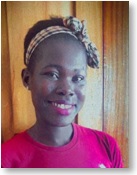 Through the information that I had been giving out in the community, the incidence of GBV cases has gone down. The biggest cause of GBV cases is the economic imbalances in the households and the families. I taught some of my community members about how to run a small-scale business to earn something small for sustainability. Abuse occurs in the home because of lack of money. When we teach them about abuse, they learn to live more peacefully. Thus, the number of cases is still low as a result of people being taught good parenting skills by CHWs, who continually reinforce that education. Through WiRED, this education about GBV has helped a lot of people in many communities.
Through the information that I had been giving out in the community, the incidence of GBV cases has gone down. The biggest cause of GBV cases is the economic imbalances in the households and the families. I taught some of my community members about how to run a small-scale business to earn something small for sustainability. Abuse occurs in the home because of lack of money. When we teach them about abuse, they learn to live more peacefully. Thus, the number of cases is still low as a result of people being taught good parenting skills by CHWs, who continually reinforce that education. Through WiRED, this education about GBV has helped a lot of people in many communities.
—CHW Carren Osomo
Handwashing and Influenza
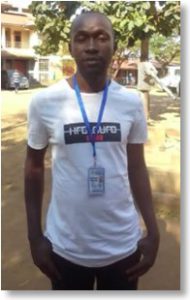 Hand washing is highly recommended for prevention of influenza and other related respiratory illnesses. Hand washing removes germs from hands, hence reducing the possibility of transmitting viruses through contact with eyes, nose and mouth. This July we educated our community on the need of practicing hand washing to prevent the spread of germs that cause influenza. Most people thought that only cold and windy weather are responsible for influenza. We urged them to practice hand washing to prevent influenza. In addition, I referred two patients who had signs of watery diarrhea to the nearby dispensary where they got treatment and went back home.
Hand washing is highly recommended for prevention of influenza and other related respiratory illnesses. Hand washing removes germs from hands, hence reducing the possibility of transmitting viruses through contact with eyes, nose and mouth. This July we educated our community on the need of practicing hand washing to prevent the spread of germs that cause influenza. Most people thought that only cold and windy weather are responsible for influenza. We urged them to practice hand washing to prevent influenza. In addition, I referred two patients who had signs of watery diarrhea to the nearby dispensary where they got treatment and went back home.
—CHW Zackary Omondi
Arthritis
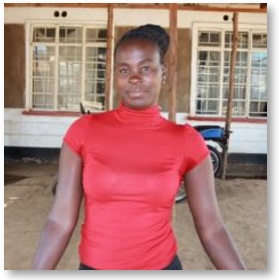 During one of my sessions in my community there was an elderly man who complained to me about constant body aches. He told me that he is on and off pain killers and that no diagnosis could be found when tests were done. When we were discussing during my group session about arthritis, he keenly listened to my teachings. After the session, I had a brief talk with him and considering the signs of arthritis, I concluded that he could be suffering from arthritis. I then referred him to the JOORTH clinic where I personally took him to find out if it was really arthritis. At the JOOTRH the man was keenly examined by the doctors and surely he has been suffering from arthritis because of his age. He was advised on what to do, and the doctors also gave him some medicines to manage this condition. Now he is doing fine since he is following the doctor’s instructions and also taking his medications.
During one of my sessions in my community there was an elderly man who complained to me about constant body aches. He told me that he is on and off pain killers and that no diagnosis could be found when tests were done. When we were discussing during my group session about arthritis, he keenly listened to my teachings. After the session, I had a brief talk with him and considering the signs of arthritis, I concluded that he could be suffering from arthritis. I then referred him to the JOORTH clinic where I personally took him to find out if it was really arthritis. At the JOOTRH the man was keenly examined by the doctors and surely he has been suffering from arthritis because of his age. He was advised on what to do, and the doctors also gave him some medicines to manage this condition. Now he is doing fine since he is following the doctor’s instructions and also taking his medications.
—CHW Mary Atieno Ogutu
Malnutrition
 I had one case of malnutrition. A one-and-a-half-year-old child showed symptoms of malnutrition. I talked to the teenage mother and she took the child to the hospital. The doctors gave the child some medications and the mother received dietary guidelines for her child. I went to visit the mother later, and the child is now doing well and has added good weight.
I had one case of malnutrition. A one-and-a-half-year-old child showed symptoms of malnutrition. I talked to the teenage mother and she took the child to the hospital. The doctors gave the child some medications and the mother received dietary guidelines for her child. I went to visit the mother later, and the child is now doing well and has added good weight.
—CHW Bunnyce Atieno
Note: The supply of antiretroviral (ARV) medications in Kenya has been severely disrupted by U.S. government funding cuts. The Kenyan Ministry of Health reports that, through clinics, it is meting out dwindling supplies to people with HIV. Patients once provided with six-month supplies are now given one-month supplies but the sustainability of even that reduced schedule is uncertain. The government has been exploring local production of ARVs but progress on that initiative is uncertain.



